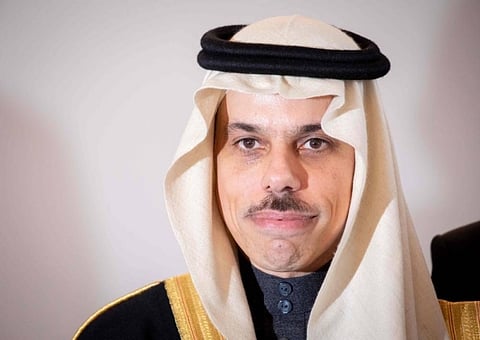

Saudi Arabia's Foreign Minister Prince Faisal Bin Farhan reaffirmed on Wednesday that the Palestinian issue; is on top of the Kingdom's foreign policy agenda and that Saudi Arabia; has not hesitated to defend the Palestinian cause since the era of King Abdulaziz until today.
In a message of solidarity sent to the Committee on the Exercise of the Inalienable Rights of the Palestinian People (CEIRPP) on the occasion of the International Day of Solidarity with the Palestinian People; the minister markedly reiterated that the Palestinian issue is a fundamental Arab issue.
Prince Faisal also thanked members of the committee for their efforts in defending; the legitimate rights of the Palestinian people that contribute to enabling them; to exercise; their inalienable rights guaranteed by the relevant international resolutions.
"The position of Saudi Arabia remains constant on the Palestinian issue; as well as in defending the legitimate rights of the Palestinians; and in adhering to the Arab Peace Initiative that was drawn up by the Kingdom and adopted; by the Arab countries at the Beirut Arab League summit of 2008.
In general the Arab Peace Initiative affirms the Palestinians' right for an independent Palestinian state on the 1967 borders; with Jerusalem as its capital, the return of refugees and the withdrawal of the occupation from the occupied Syrian Arab Golan Heights;" he said; while emphasizing that this historic initiative came as an important pillar supporting; the end of the Arab-Israeli conflict and enhancing opportunities for peace among all parties.
Prince Faisal noted that the Palestinian people have suffered a great deal in obtaining their basic rights in order to achieve economic growth that contributes to providing livelihood and improving their conditions; especially in light of the economic slowdown the world is witnessing due to the COVID-19 pandemic.
Prince Faisal also stressed that the international community should turn to the Palestinian issue; in order to intensify international efforts to end the conflict and strengthen the stability of the region.
